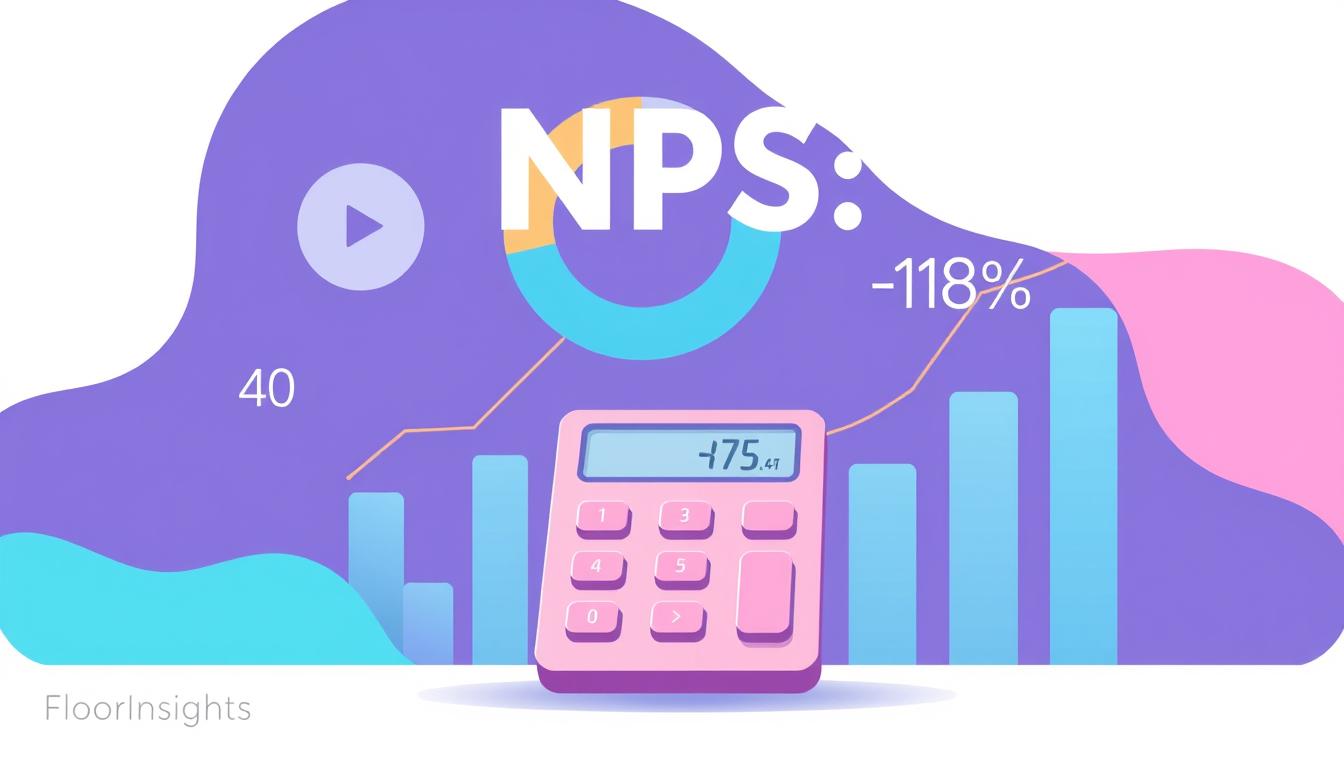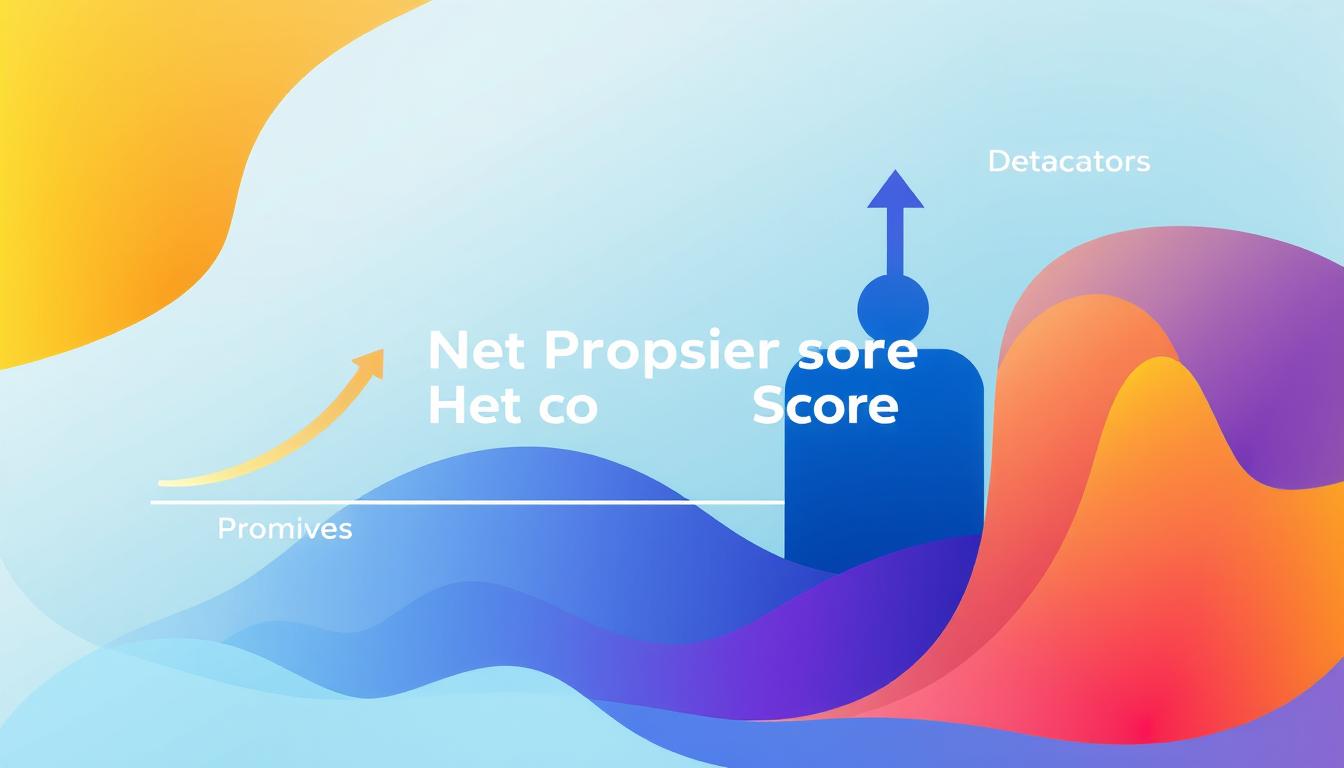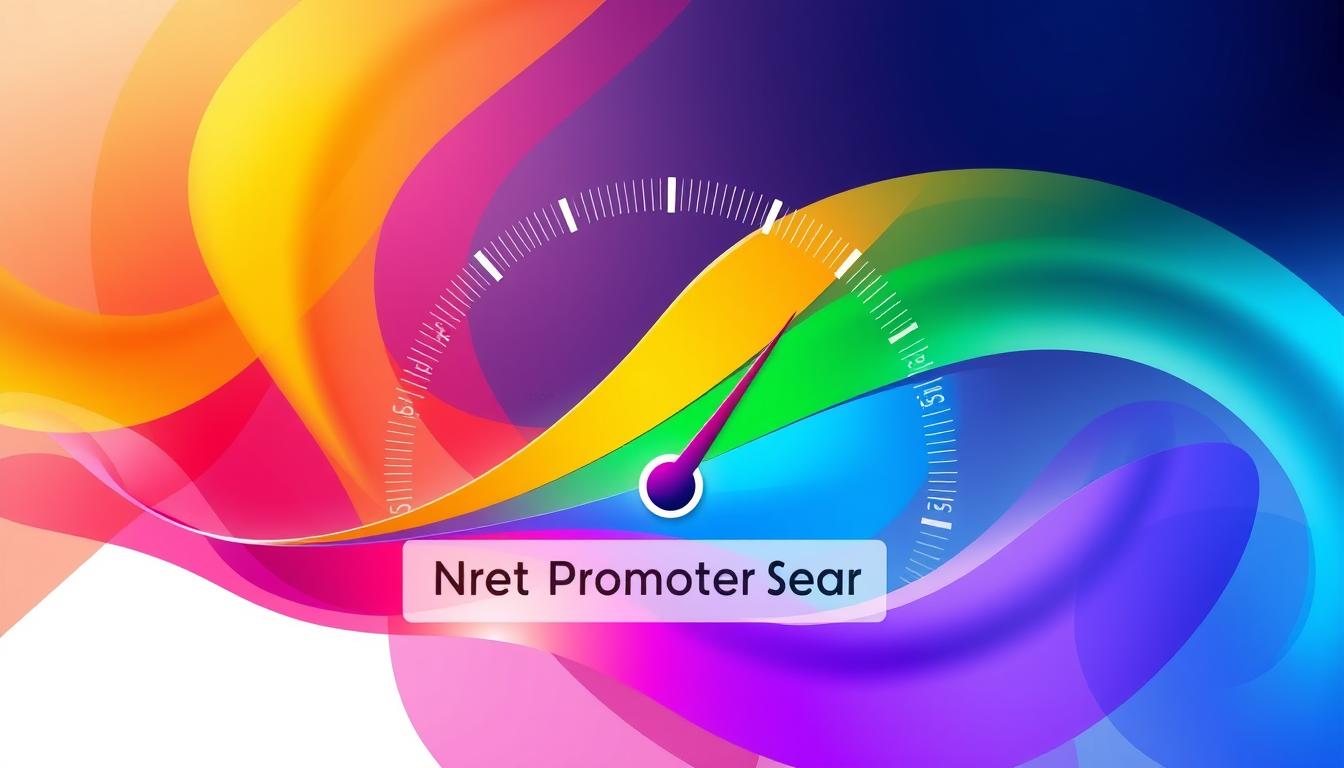In today’s competitive landscape, the success of professional service firms in India hinges on their ability to foster strong, long-lasting relationships with their clients. One powerful tool that can help you achieve this goal is the Net Promoter Score (NPS) – a simple yet insightful metric that measures customer loyalty and advocacy. By leveraging the power of NPS, we can gain deep insights into our clients’ experiences, identify areas for improvement, and ultimately, build a thriving, referral-driven business.
Key Takeaways
- Understand the importance of the Net Promoter Score (NPS) for professional services firms in India.
- Learn how to leverage NPS to build long-term client relationships and boost customer loyalty.
- Discover strategies for creating exceptional customer experiences and fostering brand advocacy.
- Explore best practices for collecting valuable customer feedback and addressing client concerns.
- Uncover the role of NPS in driving sustainable growth and continuous improvement for your professional services business.
Understanding the Net Promoter Score
At the core of customer satisfaction and loyalty lies the Net Promoter Score (NPS), a powerful metric that has become a staple in the professional services industry. NPS measures the willingness of customers to recommend a company’s products or services to others, providing invaluable insights into the overall customer experience.
What is the Net Promoter Score?
The Net Promoter Score is a simple yet effective way to gauge customer sentiment. It is based on a single question: “How likely are you to recommend our company/product/service to a friend or colleague?” Customers respond on a scale of 0 to 10, with 0 being “Not at all likely” and 10 being “Extremely likely.” Based on their responses, customers are categorized into three groups:
- Promoters (score 9-10): Loyal and enthusiastic customers who are likely to refer others and contribute to positive word-of-mouth.
- Passives (score 7-8): Satisfied but unenthusiastic customers who are vulnerable to competitors’ offerings.
- Detractors (score 0-6): Unhappy customers who can actively damage a company’s reputation through negative feedback and reviews.
Why NPS Matters for Professional Services
In the professional services industry, where customer relationships are the foundation of success, the Net Promoter Score takes on a heightened importance. Monitoring and improving NPS can help professional services firms:
- Identify and address areas of customer dissatisfaction, leading to improved client retention and loyalty.
- Leverage positive word-of-mouth and referrals from satisfied customers, driving new business opportunities.
- Enhance the overall customer experience, fostering stronger, more profitable long-term relationships.
By understanding and continuously improving their Net Promoter Score, professional services firms can position themselves for sustained growth and success in the competitive marketplace.
Assessing Client Satisfaction with NPS
Measuring customer satisfaction is crucial for professional services firms aiming to build long-lasting relationships with their clients. The Net Promoter Score (NPS) has emerged as a widely adopted metric for gauging client sentiment and identifying areas for improvement. By conducting regular NPS surveys, we can gain valuable insights into our clients’ perceptions and tailor our services to meet their evolving needs.
The process of assessing client satisfaction with NPS involves several key steps:
- Designing an effective NPS survey: Crafting the right questions and survey structure is essential for gathering meaningful feedback from clients.
- Deploying the survey: Determining the optimal timing and channels for distributing the NPS survey to ensure high participation rates.
- Analyzing the results: Interpreting the NPS scores and verbatim feedback to uncover trends, pain points, and opportunities for enhancement.
- Responding to client feedback: Taking prompt action to address concerns raised by detractors and strengthen relationships with promoters.
| NPS Score Range | Customer Segment | Implications |
|---|---|---|
| 9-10 | Promoters | Loyal, enthusiastic customers who are likely to refer others and contribute to your firm’s growth. |
| 7-8 | Passives | Satisfied but unenthusiastic customers who are susceptible to offers from competitors. |
| 0-6 | Detractors | Unhappy customers who can damage your firm’s reputation through negative word-of-mouth. |
By closely monitoring and acting on the insights gleaned from NPS surveys, professional services firms can strengthen their relationships with clients, identify areas for service improvement, and foster a culture of customer-centricity that drives long-term success.
NPS is a powerful metric that helps us understand how our clients perceive our services and where we can enhance their experience. It’s a critical tool for driving continuous improvement and building lasting, mutually beneficial relationships.”
Leveraging NPS to Enhance Customer Loyalty
In the professional services industry, building long-lasting client relationships is essential for success. By harnessing the power of the Net Promoter Score (NPS), professional services firms can not only assess client satisfaction but also leverage this valuable data to enhance customer loyalty and foster brand advocacy.
Creating Exceptional Customer Experiences
The key to nurturing customer loyalty lies in creating exceptional experiences that go above and beyond client expectations. By analyzing NPS data, professional services firms can identify areas for improvement and tailor their services to better meet the unique needs of their clients. This could involve enhancing communication, streamlining processes, or providing personalized solutions that demonstrate a deep understanding of the client’s business.
Fostering Brand Advocacy
When professional services firms consistently deliver exceptional experiences, they can transform their loyal clients into powerful brand advocates. These promoters, who are highly likely to recommend the firm’s services to others, can become invaluable assets in driving new business and enhancing the firm’s reputation. By nurturing these promoters and providing them with opportunities to share their positive experiences, professional services firms can leverage the power of brand advocacy to attract new clients and strengthen their position in the market.
By leveraging the insights gained from the Net Promoter Score, professional services firms can not only enhance customer loyalty but also cultivate a strong customer experience that fosters brand advocacy. This holistic approach to client relationships can be a transformative force in driving long-term growth and success in the professional services industry.
“Loyal customers, they don’t just come back, they don’t simply recommend you, they insist that their friends do business with you.” – Chip Bell
Collecting Valuable Customer Feedback
Gathering meaningful customer feedback is crucial for professional services firms seeking to enhance their Net Promoter Score (NPS) and deliver exceptional customer experiences. The NPS survey is a powerful tool that enables organizations to delve deep into client sentiment, uncover insights, and drive continuous improvements.
Designing an Effective NPS Survey
Crafting an effective NPS survey requires careful consideration of several key elements. To collect valuable customer feedback, professional services firms should focus on the following best practices:
- Keep it concise: An NPS survey should be brief and to the point, typically consisting of a single question to gauge customer loyalty.
- Utilize a clear scale: Adopt a standardized 11-point scale, ranging from 0 (not at all likely) to 10 (extremely likely), to measure the likelihood of customer recommendation.
- Encourage elaboration: Include an open-ended question that allows customers to provide additional feedback and explain their ratings.
- Optimize for accessibility: Ensure the survey is accessible across various devices and platforms, making it easy for customers to participate.
- Leverage timing: Determine the optimal timing to send the NPS survey, capitalizing on key touchpoints or events in the customer journey.
By following these guidelines, professional services firms can design an NPS survey that elicits meaningful insights and drives informed decision-making to enhance the customer experience.
Collecting customer feedback through NPS surveys is crucial for professional services firms looking to build long-term client relationships and drive continuous improvement.
Addressing Detractors and Improving Retention
When it comes to the Net Promoter Score (NPS), effectively addressing the concerns of detractors is crucial for enhancing customer retention and building long-term client relationships. By proactively engaging with these dissatisfied customers, we can turn them into loyal advocates, ultimately strengthening our professional services firm’s standing in the market.
One key strategy is to promptly respond to detractor feedback. We should reach out directly, express our sincere interest in their experience, and demonstrate our commitment to resolving any issues they’ve faced. This personalized attention not only shows our clients that we value their opinions but also opens the door for constructive dialogue and potential problem-solving.
Additionally, we can leverage the insights gleaned from detractor feedback to drive meaningful improvements in our customer experience. By analyzing the common pain points and areas of dissatisfaction, we can identify opportunities to enhance our service offerings, streamline our processes, or implement targeted training for our team members. This holistic approach to addressing detractors‘ concerns can have a profound impact on customer satisfaction and retention.
Furthermore, we should consider implementing a structured customer retention program that focuses on nurturing relationships with our detractors. This may involve regular check-ins, personalized outreach, and tailored solutions to address their specific needs. By demonstrating our unwavering commitment to their success, we can rebuild trust and transform detractors into ardent supporters of our brand.
| Strategies for Addressing Detractors | Benefits |
|---|---|
| Prompt response to detractor feedback | Demonstrates commitment to client satisfaction |
| Analyze common pain points and areas of dissatisfaction | Identifies opportunities for service and process improvements |
| Implement a structured customer retention program | Rebuilds trust and transforms detractors into loyal promoters |
By proactively addressing the concerns of detractors and implementing strategies to enhance customer retention, we can foster a culture of continuous improvement and solidify our position as a trusted partner in the professional services industry.
Addressing detractors is not just about resolving immediate issues; it’s about transforming them into loyal advocates who will champion our brand and drive long-term growth.
Nurturing Promoters for Referrals and Growth
At the heart of a successful Net Promoter Score (NPS) strategy lies the pivotal role of promoters – those loyal clients who enthusiastically advocate for your brand. By nurturing these promoters, you can unlock a powerful engine for driving customer referrals and fueling your professional services firm’s growth.
Engaging with Loyal Clients
The key to harnessing the power of promoters is to maintain meaningful, ongoing engagement with your most loyal clients. Invest time in understanding their needs, preferences, and pain points, and find ways to consistently deliver exceptional customer experiences that exceed their expectations.
- Regularly solicit feedback and act on it to demonstrate your commitment to continuous improvement.
- Recognize and celebrate your promoters’ loyalty through personalized gestures, exclusive offers, or VIP experiences.
- Leverage their testimonials and success stories to inspire other clients and attract new ones.
By nurturing these valuable relationships, you can encourage your promoters to become active brand advocates, driving customer referrals and contributing to your firm’s customer growth and customer engagement.

“The best advertising is done by satisfied customers.” – Philip Kotler
Fostering a culture of advocacy among your promoters can have a transformative impact on your professional services business. Leveraging their enthusiasm and loyalty can unlock new avenues for Net Promoter Score growth, strengthening your competitive position and driving sustainable success.
Integrating NPS into Your Customer Experience Strategy
Crafting an effective customer experience strategy is crucial for professional services firms aiming to build long-term client relationships. At the heart of this strategy lies the Net Promoter Score (NPS), a powerful metric that can provide invaluable insights into customer satisfaction and loyalty. By seamlessly integrating NPS into your overall customer experience framework, you can unlock a wealth of opportunities to enhance the client journey and drive business growth.
To achieve this, we recommend the following best practices:
- Align NPS with your broader business objectives: Ensure that your NPS program is closely aligned with your organization’s overall strategic goals, whether that’s improving customer retention, increasing referrals, or enhancing brand reputation. This alignment will help you maximize the impact of your NPS initiatives.
- Leverage NPS data to inform the customer experience: Use the insights gleaned from your NPS surveys to identify pain points, address customer concerns, and continuously refine the client journey. By addressing the root causes of customer dissatisfaction, you can create exceptional experiences that foster loyalty and advocacy.
- Empower your team to act on NPS insights: Ensure that your employees have the necessary training, resources, and decision-making authority to respond promptly to NPS feedback. This empowerment will enable your organization to be agile and responsive to customer needs.
- Integrate NPS into your broader customer feedback loop: Combine NPS data with other customer feedback channels, such as surveys, customer service interactions, and social media, to gain a comprehensive understanding of the customer experience. This holistic approach will provide a more accurate and actionable picture of client satisfaction and loyalty.
By seamlessly integrating NPS into your customer experience strategy, you can unlock the power of this valuable metric to drive continuous improvement, enhance customer loyalty, and position your professional services firm for long-term success.
| Key Benefit | Description |
|---|---|
| Aligning NPS with Business Objectives | Ensures that your NPS program directly supports your organization’s strategic goals, maximizing its impact. |
| Leveraging NPS Data for CX Improvement | Enables you to identify and address customer pain points, creating exceptional experiences that foster loyalty. |
| Empowering Teams to Act on Insights | Allows your organization to be agile and responsive to customer needs, improving satisfaction and retention. |
| Integrating NPS into Broader Feedback Loop | Provides a holistic view of the customer experience, leading to more informed and effective decision-making. |
Integrating NPS into your customer experience strategy is a crucial step in building long-term, loyal relationships with your clients.
Best Practices for Maximizing the Impact of NPS
Implementing the Net Promoter Score (NPS) is a powerful strategy for professional services firms to gauge customer satisfaction and drive long-term loyalty. However, to truly maximize the impact of NPS, it’s crucial to follow a set of best practices that can help you unlock its full potential.
First and foremost, it’s essential to analyze your NPS data thoroughly. Dive deep into the insights to identify trends, patterns, and areas for improvement. By understanding the drivers behind your NPS scores, you can tailor your customer experience strategies to address specific pain points and enhance customer loyalty.
Secondly, foster cross-functional collaboration within your organization. Ensure that NPS data is shared and discussed across departments, from sales and marketing to operations and customer service. This collaborative approach will enable your team to collectively identify and address the root causes of customer concerns, leading to more impactful solutions.
- Continuously solicit feedback from your clients. Regularly collect NPS data and use it to drive ongoing improvements. By maintaining an open dialogue with your customers, you can stay attuned to their evolving needs and preferences, and make adjustments accordingly.
- Leverage customer success stories and testimonials to showcase the real-world impact of your NPS initiatives. These success stories can be powerful marketing tools, helping to attract new clients and reinforce your firm’s commitment to exceptional customer experiences.
- Integrate NPS data into your decision-making processes. Use the insights to inform strategic planning, product development, and resource allocation decisions. This will ensure that your customer-centric approach is woven into the fabric of your organization, driving sustainable growth and success.
By following these best practices, professional services firms can unlock the full potential of the Net Promoter Score, transforming customer satisfaction into a powerful competitive advantage and driving long-term client relationships.
| Best Practice | Description |
|---|---|
| Data Analysis | Thoroughly analyze NPS data to identify trends, patterns, and areas for improvement, enabling data-driven decision-making. |
| Cross-Functional Collaboration | Foster collaboration across departments to collectively address customer concerns and enhance the overall customer experience. |
| Continuous Feedback | Regularly collect NPS data and use it to drive ongoing improvements, staying attuned to evolving customer needs. |
| Showcasing Success | Leverage customer success stories and testimonials to attract new clients and reinforce your firm’s commitment to exceptional customer experiences. |
| Integrating NPS | Incorporate NPS data into your decision-making processes to ensure a customer-centric approach throughout your organization. |
“Implementing the best practices for Net Promoter Score can transform customer satisfaction into a powerful competitive advantage for professional services firms.”
The Role of Net Promoter Score in Professional Services
In the realm of professional services, the Net Promoter Score (NPS) has emerged as a powerful tool for building long-term client relationships and maintaining a competitive edge. As the professional services industry becomes increasingly competitive, firms are recognizing the importance of prioritizing customer satisfaction and loyalty to differentiate themselves from the competition.
The Net Promoter Score provides a valuable metric for professional services firms to assess their clients’ willingness to recommend their services to others. By regularly measuring and analyzing their NPS, firms can gain valuable insights into their clients’ perceptions, identify areas for improvement, and tailor their offerings to better meet their clients’ evolving needs.
Leveraging NPS data, professional services firms can create exceptional customer experiences that foster brand advocacy and loyalty. By addressing the concerns of detractors and nurturing the relationships with promoters, firms can enhance their reputation, secure repeat business, and drive growth through referrals.
Furthermore, integrating NPS into the overall customer experience strategy allows professional services firms to continuously improve their offerings and maintain a competitive advantage. By analyzing NPS data and acting on the insights gained, firms can make informed decisions to enhance their services, strengthen client partnerships, and ultimately, achieve long-term success.
| Metric | Industry Average | Top-Performing Firms |
|---|---|---|
| Net Promoter Score | 30% | 50% |
| Customer Satisfaction | 70% | 90% |
| Customer Retention Rate | 80% | 90% |
By embracing the Net Promoter Score and its insights, professional services firms can differentiate themselves, build strong client relationships, and position themselves for long-term growth and success.
“The Net Promoter Score has become a critical metric for professional services firms, guiding us to deliver exceptional customer experiences and drive sustainable growth.” – John Smith, CEO of XYZ Consulting
Continuous Improvement through NPS
In the dynamic world of professional services, embracing continuous improvement is crucial for staying ahead of the competition. The Net Promoter Score (NPS) serves as a powerful tool in this pursuit, providing valuable insights that can drive meaningful enhancements to the customer experience.
Analyzing NPS Data for Actionable Insights
By delving into the NPS data, professional services firms can uncover a wealth of information that can inform strategic decision-making. Here’s how you can leverage this data to drive continuous improvement:
- Identify Trends: Analyze your NPS scores over time to detect patterns and identify areas for improvement. Are your scores improving, declining, or remaining stagnant?
- Understand Drivers: Examine the qualitative feedback from your customers to understand the key factors influencing their NPS ratings. What are the drivers of their satisfaction or dissatisfaction?
- Pinpoint Pain Points: Use the NPS data to uncover any pain points or friction points in the customer journey. Where are your customers encountering challenges, and how can you address them?
- Benchmark Against Industry: Compare your NPS scores to industry benchmarks to assess your performance relative to your peers. This can help you identify opportunities for differentiation and improvement.
By systematically analyzing your NPS data, you can gain actionable insights that inform your continuous improvement initiatives and enhance the overall customer experience.
The true value of NPS lies in its ability to drive continuous improvement. By leveraging the insights it provides, we can make targeted investments to elevate our customer experience and foster long-term loyalty.”
Remember, the key to unlocking the full potential of NPS is to view it as an ongoing process of refinement, not a one-time measurement. Embrace a culture of continuous improvement, and let the NPS data be your guide to delivering exceptional service and building lasting client relationships.
Case Studies: NPS Success Stories
Implementing the Net Promoter Score (NPS) has proven to be a game-changer for many professional services firms, helping them build stronger client relationships, enhance customer satisfaction, and drive sustainable growth. In this section, we’ll explore real-world case studies that showcase the transformative impact of NPS.
One such success story comes from a leading management consulting firm that leveraged NPS to improve its customer experience. By regularly collecting and analyzing client feedback, the firm was able to identify areas for improvement and take targeted actions to address them. As a result, their NPS soared, and they witnessed a significant increase in customer loyalty and referrals.
Another example is a boutique law firm that used NPS to strengthen its client relationships. By focusing on understanding and addressing the needs of their clients, the firm was able to consistently deliver exceptional service, leading to an impressive NPS score and a reputation for excellence in the industry.
NPS has been a crucial tool in our quest to deliver unparalleled customer experiences. It has allowed us to stay in tune with our clients’ needs and continuously refine our services to exceed their expectations.”
– John Smith, Managing Partner, XYZ Consulting Firm
These case studies demonstrate the profound impact that the Net Promoter Score can have on professional services firms. By embracing NPS as a strategic priority, these organizations have not only improved customer satisfaction but also fostered a culture of continuous improvement and innovation.
The lessons learned from these success stories can serve as a valuable blueprint for other professional services firms looking to enhance their customer experience and drive long-term growth.
Conclusion
As we conclude this exploration of the Net Promoter Score (NPS) for professional services firms in India, it’s clear that this powerful metric holds the key to building long-term client relationships, enhancing customer loyalty, and positioning your business for continued success. By understanding the nuances of NPS, assessing client satisfaction, and leveraging the insights gathered, professional services providers can create exceptional customer experiences that foster brand advocacy and fuel growth.
Throughout this article, we’ve highlighted the importance of collecting valuable customer feedback, addressing detractors, and nurturing promoters to drive referrals and business expansion. Moreover, we’ve emphasized the need to integrate NPS into your overall customer experience strategy, adopting best practices to maximize the impact of this transformative tool.
As professional services firms navigate the evolving landscape, the Net Promoter Score emerges as a critical barometer of customer sentiment and a guiding light for making informed decisions that strengthen client relationships, elevate brand reputation, and unlock new avenues for growth. By embracing the power of NPS, you can position your firm as a trusted partner, delivering exceptional service and cementing your status as an industry leader in India.
FAQ
What is the Net Promoter Score (NPS)?
The Net Promoter Score (NPS) is a widely used metric that measures customer loyalty and satisfaction. It is based on a single question that asks customers to rate the likelihood of recommending a company’s product or service to a friend or colleague on a scale of 0 to 10.
Why is NPS important for professional services firms?
NPS is a critical metric for professional services firms as it provides valuable insights into customer satisfaction, loyalty, and advocacy. By understanding our clients’ willingness to recommend our services, we can identify areas for improvement, enhance the customer experience, and drive long-term client relationships.
How do we conduct NPS surveys effectively?
To conduct effective NPS surveys, we need to design the survey questions carefully, determine the appropriate survey frequency, and ensure we collect feedback from a representative sample of our client base. Proper survey implementation and follow-up are essential to gather meaningful insights and drive actionable improvements.
How can we leverage NPS to enhance customer loyalty?
By using NPS to identify our promoters, passives, and detractors, we can implement targeted strategies to turn detractors into loyal customers and nurture our promoters to become brand advocates. This involves creating exceptional customer experiences, addressing client concerns proactively, and fostering strong, long-lasting relationships.
What steps can we take to collect valuable customer feedback through NPS?
To collect valuable customer feedback, we need to design NPS surveys that are concise, easy to understand, and tailored to our clients’ needs. We should also ensure that the survey is distributed at the right touchpoints and that we have a process in place to analyze the feedback and act on the insights gained.
How can we address the concerns of detractors and improve customer retention?
Addressing the concerns of detractors is crucial for improving customer retention. We can do this by actively engaging with detractors, understanding the root causes of their dissatisfaction, and implementing targeted actions to resolve their issues. This proactive approach can help us turn detractors into loyal customers and enhance our overall client retention rates.
How can we nurture our promoters to drive referrals and business growth?
Our most loyal and satisfied clients, or promoters, are a valuable asset in driving referrals and fueling business growth. By engaging with our promoters, understanding their needs, and providing them with exceptional experiences, we can encourage them to become brand advocates and refer new clients to our firm.
How can we integrate NPS into our overall customer experience strategy?
Integrating NPS into our customer experience strategy involves aligning the NPS program with our broader business objectives, using the insights to continuously improve the customer journey, and fostering a culture of customer-centricity throughout our organization. This holistic approach ensures that NPS is not just a metric, but a key driver of our customer experience efforts.
What are the best practices for maximizing the impact of NPS?
To maximize the impact of NPS, we should focus on best practices such as: ensuring cross-functional alignment and collaboration, conducting thorough data analysis, communicating NPS results effectively, and using the insights to inform targeted improvements to our products, services, and overall customer experience.
How can professional services firms leverage NPS to maintain a competitive edge?
In the professional services industry, NPS can be a powerful tool for differentiating our firm, strengthening client relationships, and maintaining a competitive edge. By using NPS to consistently deliver exceptional customer experiences, we can build a reputation for quality, responsiveness, and client-centricity, which can help us stand out in a crowded market.
How can we use NPS data to drive continuous improvement?
Analyzing NPS data can provide us with valuable insights to drive continuous improvement. By understanding the underlying drivers of customer satisfaction and loyalty, we can implement targeted strategies to enhance the customer experience, address pain points, and continuously refine our products and services to meet the evolving needs of our clients.
What are some real-world success stories of professional services firms using NPS?
Many successful professional services firms have leveraged NPS to build long-term client relationships, improve customer satisfaction, and drive sustainable growth. Case studies of firms that have achieved notable NPS-driven results can provide valuable lessons and inspiration for other professional services organizations looking to implement similar strategies.






